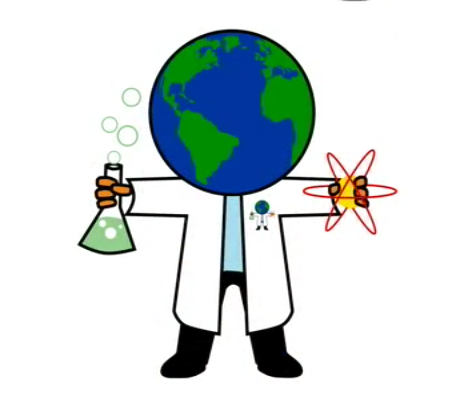Critical thinking education trumps banning and censorship in battle against disinformation, study suggests::A new study conducted by researchers from Michigan State University suggests that the battle against online disinformation cannot be won by mere content moderation or banning those who spread fake news. Instead, the key lies in early and continuous education that teaches individuals to critically evaluate information and remain open to changing their minds. …
This study is an agent-based simulation:
The researchers used a type of math called “agent-based modeling” to simulate how people’s opinions change over time. They focused on a model where individuals can believe the truth, the fake information, or remain undecided. The researchers created a network of connections between these individuals, similar to how people are connected on social media.
They used the binary agreement model to understand the “tipping point” (the point where a small change can lead to significant effects) and how disinformation can spread.
Personally, I love agent-based models. I think agent modeling is a very, very powerful tool for systems insight, but I don’t like this article’s interpretation, nor am I convinced the author of this article really groks what agent-based modeling really is. It’s a very different kind of “study” than what most people mean when they use that word, and interpreting the insights is its own can of worms.
Just a heads up, for those of you casually scrolling by.
Upvoted for correct use of word ‘grok’, but definitely want to learn more about agent-based modelling. If for no other reason than truth inoculation is one of the more vital battles of our time.
The basic gist is you define “agents” as individual actors following very specific set of rules, usually quite stripped down and simple, and then simulate lots of agents acting together to see what the emergent properties are.
Generally, your agents have rules, you set up the initial conditions, and then you have a “time step,” or a “turn,” in which the agents interact.
For example, you might simulate a social media platform by saying that each person (the agent) has two rules:
- Each person will make one tweet, composed of a gpt2 generated sentence
- Each person will like boost any other person’s tweet that they see whose tweet most resembles one of their own, by using something like a string distance similarity cutoff or something
Each time step might look like this:
- Each user makes their random tweet
- Each user is presented with N random tweets from the whole pool of tweets, weighted by how boosted they are (a twice boosted tweet appears in the bag three times, so to speak, whereas a non-boosted tweet is just there once)
At the end, you could see how even under these conditions, some tweets go viral. And this is what I mean when I say interpreting the results of agent-based modeling is tricky – you sort of purposefully craft your agents to get the result you want.
This can be a bit confusing, because that’s a bit backwards to how the hypothesis-experiment-conclusion thing normally works, but agent modeling is more an interpretive act than a descriptive one. The point is to see if you can recreate an emergent, complex behavior with simple rules. The model I made up just now, which I haven’t actually coded up and might not work at all (though I’m tempted now…), wouldn’t explain tweets going viral, but it might give some insight into the baked-in nature of going viral in the very structure of twitter, even independent of the content of the tweet.
One of the classic uses of these sorts of models is what these authors did – you look for tipping points. Roughly speaking, tipping points are when a change in a system produce a qualitatively different behavior. So, in our example, we might notice that once a tweet has a certain amount of retweets, it gets retweeted forever, or something like that. We might change the initial conditions or rules of the game (how many tweets per turn, how many tweets does each user see, etc.), and glean some insight into how those affect that condition.
People love to do agent-based modeling for markets, as you might imagine. I think markets are silly, so I also think many of these models can be quite silly, especially the ones that are intended to predict things to make money, which can make very, very complex agents (imo this is a strange application of the idea of agent modeling), but some of them are very good. Again, I personally think markets are dumb, so my bias is going to show, but people do really good agent-based models using coin flips or energy exchange in ideal gases to show that inequality is baked into markets.
Wow, thanks!
When you describe it like that it’s a simulation like we use in factory design. Really powerful tool in a lot of ways that can bring huge insight with the small issue of sometimes breaking down completely when faced with reality
So it mimics me?
deleted by creator
Ok yeah that actually makes a ton of sense here
To summarise, agent based analysis is closer to comparative analysis than objective analysis, and is best used for analysing systems with too many variables for comprehensive objective analysis.
deleted by creator
I’m sure this is an important article and all, but good god that title is confusing.
Why are we always making titles like Yoda is saying it?
Putting the attention-grabbing part first means people are more likely to keep reading after the first word or two. A sea of “Study suggests ____” or “Report states _____” won’t direct as many views to the stories the users are interested in reading. This is particularly true when the headline may be truncated by aggregator sites or mobile notifications but works for paper as well when parts might be hidden behind other items at a news stand.
Hmm. Clicks, it does generate. Yeess!
But the people forcing censorship and bans have no interest in having people be more critical… Keeping them stupid and brainwashing them is the goal. This study misses the point
I mean, the sentiment makes sense, but if the answer is to teach more kids to think critically, we have an uphill battle. Something tells me that republican legislatures are already very aware of this sentiment as evidenced by all of the book banning a we are seeing in states across the country.
Honesty, in these dire circumstances, we need both tools.
I would like to see history tests no longer ask exact dates and instead ask WHY something happened. Why Japan chose to attack Pearl Harbor is a much more thought provoking question than what day Pearl Harbor got attacked.
Yeah though I think filling in timelines of correlated events is also important as are certain time gaps or how short or long something was. Maybe the fact that cowboys and Victorians were Meji era, doesn’t need mentioned, but understanding that they were less than a lifetime away from the era of American piracy does give an understanding of how the colonialism that both were able to achieve with minimal losses using new industrial technology and how that influenced WWI.
It’s a simulation, not really a study.
I bet this will have an impact on the same crowd who insists upon abstinence-only sex education to prevent unintended pregnancy, they’re usually receptive to research and data.
No fucking shit.
Well, reality isn’t always intuitive, so it’s good to double check like this.






